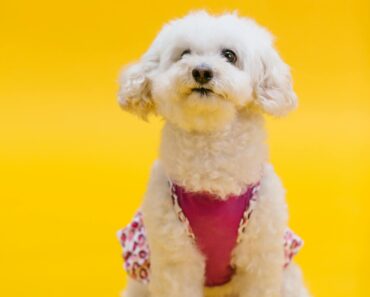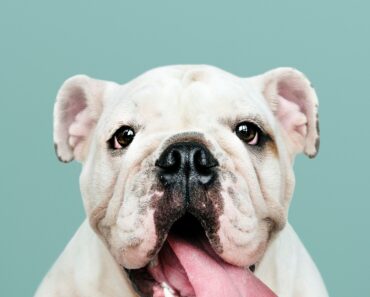Keeping your Golden Retriever happy and healthy starts with the right diet and nutrition. This breed is active and has special nutritional needs. We’ll cover the best diet and nutrition for your furry friend. This includes understanding their needs, choosing high-quality dog food, and following proper feeding guidelines.
A beautiful golden retriever sitting next to a bowl full of nutritious dog food and a water bowl. Its coat is shining and healthy, and it looks happy and content.
Key Takeaways
- Golden Retrievers have distinct nutritional needs that differ from other dog breeds
- Providing a balanced diet with high-quality protein, carbohydrates, and fiber is essential for your Golden’s health
- Selecting breed-specific or high-quality dog food can help meet your Golden’s dietary requirements
- Proper feeding guidelines, including portion sizes and feeding schedules, are crucial for maintaining your Golden’s optimal weight and preventing health issues
- Incorporating nutritious ingredients and supplements can further support your Golden Retriever’s overall well-being
Understanding Your Golden Retriever’s Nutritional Needs
Feeding your Golden Retriever the right food is key to their health and happiness. They need a diet that meets their special needs to stay active and avoid health problems.
Importance of a Balanced Diet
For a Golden Retriever, a balanced diet means eating foods with the right mix of proteins, carbs, fats, vitamins, and minerals. This mix helps them get all the nutrients they need to be healthy. If they don’t get these, they might feel tired, have weak immune systems, or other health issues.
Factors Affecting Nutritional Requirements
Many things can change what your Golden Retriever needs to eat. Their age, how active they are, and any health problems they have can all play a part. Puppies need more calories and nutrients to grow fast, while older dogs might need less food because they move less.
Also, active Goldens need different food than those who don’t move as much. Special dog foods for certain breeds can meet these needs. This ensures your Golden gets the right nutrients to stay healthy.
“A balanced diet is the foundation for a healthy, happy Golden Retriever. Understanding their specific nutritional requirements is key to supporting their overall well-being.”
Choosing High-Quality Dog Food
Feeding your Golden Retriever the right food is key. High-quality dog food gives them the nutrients they need to stay healthy. It’s important to read the labels to find the best food.
Reading and Understanding Dog Food Labels
Understanding dog food labels can seem hard, but it’s important. It helps you choose the right food for your Golden Retriever. Here are some tips for reading labels:
- Ingredient list: Look for whole, recognizable ingredients like lean proteins, wholesome grains, and nutrient-dense vegetables. Avoid foods with lots of artificial additives or fillers.
- Protein sources: Choose foods with chicken, turkey, or fish as main ingredients. Proteins should be a big part of the food.
- Nutritional adequacy statement: This makes sure the food meets the right nutritional standards for your Golden Retriever’s age.
- Guaranteed analysis: Check the guaranteed analysis for the right levels of protein, fat, fiber, and essential vitamins and minerals.
By reading and understanding dog food labels, you can pick a high-quality, nutritious option. This will keep your Golden Retriever happy and healthy.https://www.youtube.com/embed/O0QKnN8Sg10
“Feeding your Golden Retriever a diet made with high-quality, wholesome ingredients is one of the best things you can do to support their overall health and well-being.”
Best food for Golden Retrievers
Choosing the right food for Golden Retrievers is key. They are active and need a diet that matches their energy and supports health.
High-quality protein is crucial for Golden Retrievers. They do well on diets with lean proteins like chicken, turkey, or fish. These proteins help with muscle growth and keep their coat and skin healthy.
- Look for dog food formulas that list a high-quality protein as the first ingredient.
- Avoid dog foods with a high proportion of fillers, by-products, or low-quality protein sources.
Golden Retrievers also need carbohydrates and fiber for their digestive health and weight. Whole grains such as brown rice, oats, or barley give them energy and important nutrients.
“The best food for Golden Retrievers should be tailored to their specific nutritional needs, providing a balance of high-quality proteins, complex carbohydrates, and essential vitamins and minerals.”
When picking food for your Golden Retriever, think about their age, how active they are, and any health issues. Talking to your vet can help find the best food for golden retrievers. It ensures your dog gets the right golden retriever diet.
Breed-Specific Dog Food Options
Choosing the right food is key for your Golden Retriever’s health. Breed-specific dog food meets their unique needs, supporting their health and happiness.
Golden Retrievers love to move and eat a lot. They need a diet that keeps them energetic and growing strong. These foods have more protein and important vitamins and minerals for Golden Retrievers.
| Brand | Protein Content | Key Ingredients | Targeted Benefits |
|---|---|---|---|
| Purina Pro Plan Sport Performance 30/20 Formula | 30% minimum | Chicken, whole grain wheat, corn gluten meal | Supports active lifestyles, muscle development, and joint health |
| Hill’s Science Diet Sensitive Stomach & Skin | 22.5% minimum | Chicken, brown rice, barley | Promotes digestive and skin health |
| Iams Proactive Health Large Breed Adult | 23% minimum | Chicken, whole grain corn, chicken by-product meal | Supports joint and bone health in large breed dogs |
When picking food for your Golden Retriever, read the labels well. Look for foods with high-quality protein, complex carbs, and supplements. These help meet your dog’s specific needs.
Using breed-specific food can make your Golden Retriever healthier and more energetic. The right food helps them stay healthy and happy. It lets them live their best life with you.
A healthy-looking Golden Retriever sitting in a lush grassy field, with a bowl of breed-specific dog food beside him. The dog is curious and engaged, focused on the food, with his tail wagging excitedly. The food is made up of high-quality ingredients like chicken, brown rice, and sweet potatoes, and it’s clear that this is the best diet for this particular breed. The overall image should convey health, vibrancy, and a sense of the joy that comes from taking care of your pet’s nutritional needs.
Nutritious Ingredients for Golden Retrievers
Feeding your Golden Retriever a diet full of healthy ingredients is key. A balanced diet supports their health and meets their breed-specific needs.
Protein Sources
High-quality protein is vital for Golden Retrievers. It keeps muscles strong, boosts the immune system, and keeps skin and coat healthy. Choose lean proteins like chicken, turkey, or fish for a complete amino acid profile. Stay away from low-quality or processed proteins that may not give your dog what they need.
Carbohydrates and Fiber
Carbs and fiber are crucial for your Golden Retriever’s health. Whole grains, sweet potatoes, and brown rice offer energy and aid digestion. Ingredients like pumpkin, beets, and oats are high in fiber, helping with a healthy gut and preventing constipation.
Adding these healthy dog food ingredients to your dog’s diet ensures they get the balanced canine nutrition they need. Remember, every dog is different, so talk to your vet to tailor a diet plan for your Golden Retriever.
Feeding Guidelines for Golden Retrievers
Feeding your golden retriever right is key to their health and happiness. Whether your dog is a puppy or an adult, the right diet is crucial. It helps them stay healthy and happy.
Puppy Feeding Recommendations
Puppies need special care when it comes to food. Here are some tips for feeding your golden retriever puppy:
- Feed a high-quality, nutrient-dense puppy dog food made for large breed puppies.
- Give them 3-4 small meals a day to spread out their calories.
- Start switching to adult dog food around 12-18 months old, as your vet suggests.
Adult Feeding Recommendations
Adult golden retrievers have different needs than puppies. Here are some tips for feeding your adult dog:
- Pick a high-quality adult dog food with the right mix of protein, carbs, and fiber.
- Feed them 2-3 times a day, adjusting the amount based on their activity and weight.
- Make sure they always have clean, fresh water.
- Talk to your vet for specific feeding advice based on your dog’s age, health, and lifestyle.
Following these golden retriever feeding guidelines ensures your dog gets the right food. Tailoring their diet to their life stage and needs supports their health and happiness.
Golden Retriever Diet and Common Health Issues
A golden retriever’s diet is key to their health and happiness. Feeding them a golden retriever diet full of nutrients supports their immune system, joint health, and lowers the risk of health problems.
Golden retrievers often face joint issues like hip and elbow dysplasia. Eating foods rich in glucosamine, chondroitin, and omega-3 fatty acids can keep their joints healthy and reduce swelling. Also, a balanced diet helps with weight control, which is good for their joints.
These dogs can also get cancer, like lymphoma and hemangiosarcoma. Adding antioxidant-rich foods like sweet potatoes, blueberries, and leafy greens to their diet can boost their immune system. This might lower their risk of cancer.
Also, a good golden retriever nutritional needs plan can prevent skin allergies, stomach issues, and heart disease. Working with your vet ensures your dog’s diet fits their needs and keeps them healthy.
“A healthy diet is the foundation for a golden retriever’s overall well-being. By providing them with the right balance of nutrients, you can help prevent common health issues and ensure they thrive.”
Homemade Dog Food Recipes for Golden Retrievers
Feeding your Golden Retriever a homemade diet is a great way to make sure they get the best nutrition. By making meals at home, you can adjust the ingredients to fit your dog’s needs and tastes. Here are some tasty and healthy recipes that are great for Golden Retrievers.
Protein-Packed Chicken and Veggie Stew
This stew is full of lean chicken, fresh veggies, and healthy fats for a balanced meal. Start by cooking boneless, skinless chicken breasts in low-sodium chicken broth. Then, add diced sweet potatoes, carrots, green beans, and a bit of coconut oil. Serve it warm, and your Golden Retriever will enjoy the delicious taste.
Homemade Meatballs with Brown Rice and Spinach
Try these homemade meatballs for a protein-packed meal. Mix ground turkey, brown rice, and fresh spinach together. Shape into balls and bake until they’re fully cooked. This mix of lean protein, carbs, and greens is a great meal for your Golden Retriever.
| Ingredient | Amount |
|---|---|
| Ground turkey | 1 lb |
| Brown rice, cooked | 1 cup |
| Fresh spinach, chopped | 1 cup |
| Egg | 1 |
| Garlic powder | 1 tsp |
| Salt | 1/2 tsp |
| Ground black pepper | 1/4 tsp |
When making homemade dog food, it’s key to make sure the recipes are balanced and right for your Golden Retriever’s needs. Talk to your vet or a pet nutrition expert to help plan meals that keep your pup healthy and happy.
Show a golden retriever eagerly eating a bowl of homemade dog food that contains healthy ingredients like lean protein, vegetables, and grains. The bowl should be placed on a wooden table or kitchen countertop, with natural light coming in from a nearby window to illuminate the meal. Extra details could include a fork or spoon in the background, indicating that the food was carefully prepared, or an empty plate nearby suggesting that the dog has already enjoyed a satisfying meal.
“Homemade dog food allows you to provide your Golden Retriever with the highest-quality, most nutritious ingredients available.”
Supplements and Treats for Golden Retrievers
A balanced diet is key for your Golden Retriever’s health. But, supplements and treats can also help. They fill in nutritional gaps and meet specific needs.
Essential Vitamins and Minerals
Golden Retrievers need various vitamins and minerals to stay healthy. Key nutrients that are good for them include:
- Omega-3 and Omega-6 fatty acids, which support skin and coat health, as well as cognitive function.
- Glucosamine and chondroitin, which can help maintain healthy joints and mobility.
- Probiotics, which promote a healthy gut microbiome and aid digestion.
- Antioxidants, such as vitamins C and E, which can help boost the immune system.
When picking supplements, talk to your vet to find the right ones and how much to give. Don’t give supplements without a vet’s advice, as too much can be bad.
| Nutrient | Benefit | Recommended Dosage |
|---|---|---|
| Omega-3 and Omega-6 Fatty Acids | Supports skin and coat health, cognitive function | 200-300 mg per 10 lbs of body weight |
| Glucosamine and Chondroitin | Maintains healthy joints and mobility | 500-1000 mg per 50 lbs of body weight |
| Probiotics | Promotes a healthy gut microbiome and aids digestion | 1-2 billion CFUs per day |
Healthy treats are also good for your Golden Retriever. Choose treats that are low in calories and high in nutrients. They should be made with natural ingredients that fit your Golden’s balanced canine nutrition and golden retriever nutritional needs.
Tips for Transitioning to a New Diet
Switching your Golden Retriever to a new diet, like high-quality commercial food or homemade recipes, needs careful planning. It’s important to do it slowly to avoid digestive problems. Suddenly changing your dog’s diet can upset their stomach.
Here are some tips to make the switch to a new golden retriever diet easy:
- Start by mixing a little of the new food with their current diet. Gradually increase the new food over 7-10 days.
- Change the diet based on how your dog feels. If they have stomach issues, slow down the change.
- Make sure the new diet is balanced canine nutrition with healthy dog food ingredients for your pup’s needs.
- Watch your dog’s energy, coat, and health during the change. If you see any problems, talk to your vet.
- Keep a regular feeding schedule and avoid free-feeding to help your dog adjust.
By slowly and carefully changing your Golden Retriever’s diet, you can make the switch easier. This helps support their health and happiness.
| Tip | Explanation |
|---|---|
| Introduce the new food gradually | Start with a small amount of the new food mixed with the old, gradually increasing the ratio over 7-10 days. |
| Adjust the transition timeline | Slow down the transition if your dog experiences any digestive discomfort. |
| Ensure balanced nutrition | The new diet should provide all the necessary nutrients for your Golden Retriever’s health. |
| Monitor your dog’s health | Watch for changes in energy, coat condition, and overall well-being during the transition. |
| Stick to a consistent feeding schedule | This can help your dog adapt more easily to the new diet. |
Conclusion
Feeding your Golden Retriever a balanced, high-quality diet is key for their health and happiness. We’ve looked at their special nutritional needs, the importance of reading dog food labels, and the best foods for their active life.
Choosing the right dog food, whether it’s breed-specific or homemade, is crucial. Make sure it has plenty of quality protein, complex carbs, and vitamins and minerals. Following the right feeding plan and adjusting it for your dog’s needs will help them stay healthy and happy.
The best food for golden retrievers, the golden retriever diet, and a balanced canine nutrition plan are vital for your pet’s care. By using the tips from this article, you can give your Golden Retriever the nutrition they need for a long, happy life.
FAQ
What are the key nutritional needs of Golden Retrievers?
Golden Retrievers need a balanced diet for good health. They require high-quality proteins, carbs, fats, vitamins, and minerals. These nutrients support their active life, growth, and health.
How can I identify high-quality dog food for my Golden Retriever?
Look for dog food with real, whole-food ingredients. Avoid foods with fillers or artificial additives. Make sure the food meets your Golden’s nutritional needs by reading the label carefully.
Are there breed-specific dog food options for Golden Retrievers?
Yes, there are special dog foods for Golden Retrievers. These foods have the right nutrients and ingredients for their health and well-being.
What are some of the key ingredients that should be present in the best food for Golden Retrievers?
The best food for Golden Retrievers includes quality proteins like chicken or fish. It should also have complex carbs, fruits, and vegetables. Plus, it needs vitamins, minerals, and healthy fats for overall health.
How much should I feed my Golden Retriever, and how often?
Feeding amounts vary by age, activity, and health. Puppies eat small, frequent meals. Adults usually eat two times a day. Talk to your vet for the right amounts and schedule for your Golden.
Can a Golden Retriever’s diet affect their susceptibility to common health issues?
Yes, diet affects a Golden Retriever’s health and risk of certain conditions. A balanced diet supports their immune system, weight, and can lower the risk of hip dysplasia, heart disease, and cancer.
What are some homemade dog food recipes that are suitable for Golden Retrievers?
Homemade food for Golden Retrievers should mix quality proteins, carbs, and nutrient-rich ingredients. Always check with a vet or nutritionist to make sure it’s balanced for your dog.
Can I supplement my Golden Retriever’s diet with additional vitamins and minerals?
Supplements can help, but talk to your vet first. The best dog foods are complete and balanced. Supplements might be needed for specific health issues or life stages.
How can I successfully transition my Golden Retriever to a new diet?
Transition your Golden to a new diet slowly over one to two weeks. Mix the new food with their old food, increasing the new food bit by bit. This helps their digestive system adjust without upset.





